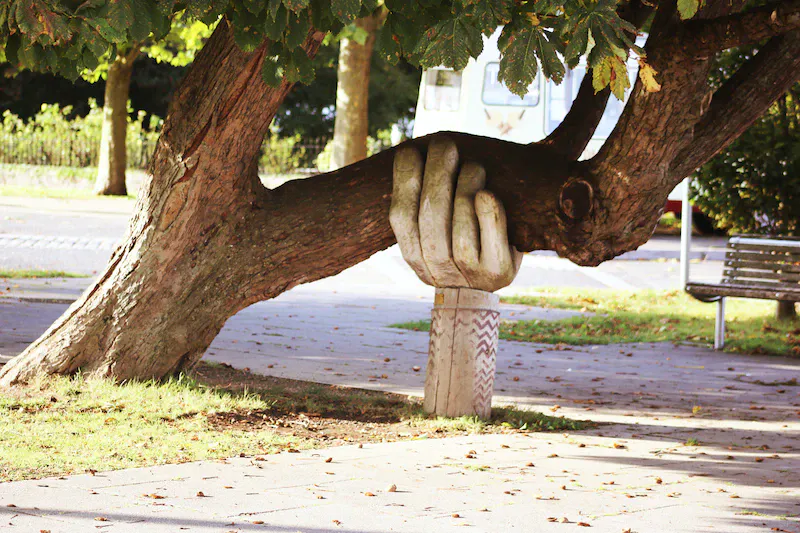Breaking Down Barriers: The Culture of Repression and Gender Issues in India

The Culture of Repression in India
India is a country known for its rich cultural heritage, traditions, and values. However, despite the progress made in various fields, the country still has a long way to go when it comes to open and honest conversations about sex and sexuality.
One of the main reasons for this is the culture of repression that exists in India. As Akash, the comedian, points out in his video script, there is a pervasive sense of discomfort and awkwardness when it comes to talking about sex. This discomfort is rooted in various cultural and societal factors, including the taboo associated with sex, the conservative outlook of many communities, and the lack of sex education in schools.
Speaking of the latter, the absence of sex education in schools is a major contributor to the culture of repression in India. While some schools may touch upon the topic of reproduction in biology classes, there is a lack of comprehensive sex education that covers topics such as consent, safe sex, and healthy relationships.
In fact, as Akash points out, the only sex education he received in school was a brief mention of herpes and a chapter on reproduction that was taught a year after puberty had already set in. This lack of proper education can lead to misunderstandings, harmful attitudes, and even dangerous behavior.
Furthermore, the chapter on reproduction itself is often misleading and confusing. Akash notes that the chapter talks about plants, not humans, which only adds to the confusion for young students. Additionally, the diagrams of male and female genitalia can be unclear and even comical, making it difficult for students to understand what is being taught.
The combination of the lack of sex education and the misleading nature of the reproduction chapter can have serious consequences. It perpetuates a culture of repression that stigmatizes sex and prevents individuals from having open and honest conversations about their own sexual health and well-being.
In conclusion, it is important for India to break free from the culture of repression that surrounds discussions of sex and sexuality. This can only be achieved through comprehensive sex education that covers a wide range of topics and addresses the specific needs of different communities. It is time for India to hug openness and honesty when it comes to sex and sexuality, and for schools to play a more active role in providing this education to their students.
Gender Sensitization and Stereotypes
India has a long way to go when it comes to gender sensitization and breaking down stereotypes that limit and harm both men and women. Akash, the comedian, touches upon this issue in his video script, highlighting the pervasive nature of gender stereotypes and the need for change.
One of the main challenges in achieving gender sensitization is the perpetuation of stereotypes that limit individuals based on their gender. For example, Akash notes that girls in school were often told not to talk to boys or they would get pregnant, while boys were left to play cricket instead of receiving proper sex education.
This perpetuates harmful attitudes towards sex and relationships, and creates a negative feedback loop that only serves to further entrench gender stereotypes.
However, there is hope. The new generation, those aged 18-25, are more sexually liberated than previous generations. They are more accepting of different sexual preferences, more open to discussion about sex and sexuality, and more willing to break down traditional gender stereotypes.
This is an important step towards gender sensitization, but there is still work to be done. Akash stresses the need for open and honest conversations about uncomfortable topics, such as sex, and the power of laughter to break down barriers and create a more accepting and inclusive society.
Indeed, laughter can be a powerful tool in tackling uncomfortable topics. As Akash notes, his jokes about suicide were initially met with criticism, but eventually led to someone who had attempted suicide feeling comfortable enough to laugh about their experience. This shows the power of humor to create a sense of community and understanding, even around topics that are typically stigmatized.
In conclusion, gender sensitization and breaking down gender stereotypes is a crucial step towards creating a more equal and inclusive society in India. The new generation is making progress, but there is still work to be done in terms of open and honest conversations about uncomfortable topics and the use of humor to break down barriers. It is only through these efforts that India can truly move towards gender equality and create a more accepting and inclusive society for all.
Breaking Down Barriers through Humor
The Importance of Art in Shifting Perspectives
Art is a powerful tool for shifting perspectives and changing the way we see the world. It has the ability to take something uncomfortable and make it palatable by presenting it in a new light. Humor, in particular, can be an effective way of breaking down barriers and opening up difficult conversations.
In his stand-up comedy routine, Akash talks about a taboo topic in India: sex. He uses humor to bring light to the culture of repression in India and the lack of sex education in schools. By making people laugh, he is able to break down the barriers that prevent people from talking about uncomfortable topics like sex.
Gender Sensitization and Stereotypes
Akash also talks about gender sensitization and stereotypes in his routine. He points out that there is still a sense of discomfort when it comes to talking about the opposite gender and their sexual organs in India. He notes that there is a lack of gender sensitization in the country and that people are still attached to the idea that how much someone talks about sex reflects their moral values.
However, Akash notes that the new generation is more sexually liberated and open to talking about these topics. He urges people to break down these barriers and have uncomfortable conversations with their friends and family. By doing so, we can work towards a more open and accepting society.
Hugging Uncomfortable Conversations
Akash believes that by talking about uncomfortable topics and laughing about them, we can break down the barriers that prevent us from having these conversations. He notes that laughter can be a powerful tool in making uncomfortable topics more palatable. By using humor, we can shift our perspectives and open up to new ideas and ways of thinking.
In conclusion, Akash’s stand-up comedy routine is an example of how humor can be used to break down barriers and have uncomfortable conversations. By using art and humor to shift our perspectives, we can work towards a more open and accepting society. It is important that we hug uncomfortable conversations and talk about taboo topics if we want to create a better world for ourselves and future generations.
Overcoming Personal Insecurities
Comedian Akash talks about how comedy has helped him overcome his personal insecurities, particularly about sex. Through his performances, he aims to normalize conversations about sex and break down barriers that prevent people from talking about this uncomfortable topic.
Growing up, Akash realized that there was a culture of repression in India when it comes to discussing sex. Lack of sex education in schools and the misleading chapter on reproduction added to the confusion and discomfort surrounding the topic. Gender sensitization and stereotypes also played a role in perpetuating this culture of repression.
Despite the challenges, Akash believes that the new generation is more sexually liberated than ever before. However, there is still a long way to go in terms of breaking down societal barriers and overcoming personal insecurities.
One way to address this issue is through humor. Akash believes that by making people laugh about uncomfortable topics, he can help break down barriers and shift perspectives. Good art, including comedy, has the power to take something unpalatable and uncomfortable and present it in a new light.
Hugging uncomfortable conversations is the first step in overcoming personal insecurities. Akash encourages people to talk about sex openly and without shame. Normalizing these conversations is essential in breaking down the culture of repression that exists in India.
In conclusion, overcoming personal insecurities requires a willingness to hug uncomfortable conversations and challenge societal barriers. Humor can be a powerful tool in breaking down these barriers and shifting perspectives. Akash’s call to action is to talk about sex today and to help normalize conversations about this important topic.
Conclusion
It is evident that India’s culture of repression when it comes to talking about sex has created a negative feedback loop that has been carried from one generation to another. This has resulted in a lack of sex education in schools, misleading chapters on reproduction, and an overall lack of gender sensitization. However, the new generation is more sexually liberated and open-minded than ever before, which gives hope for change.
It is important to break down barriers and hug uncomfortable conversations about sex. Through humor and art, we can shift perspectives and overcome personal insecurities. Normalizing conversations about sex is necessary for a healthier and more fulfilling sex life. We must take action and talk about sex today, without shame or judgment. It is time to break the culture of repression and start talking about sex openly and honestly.




